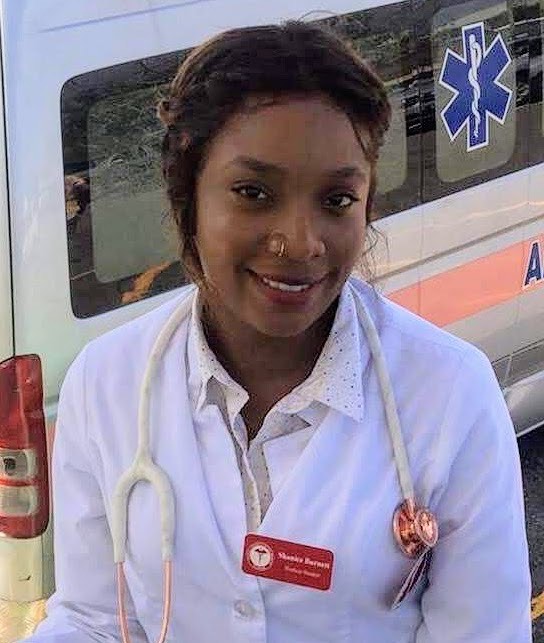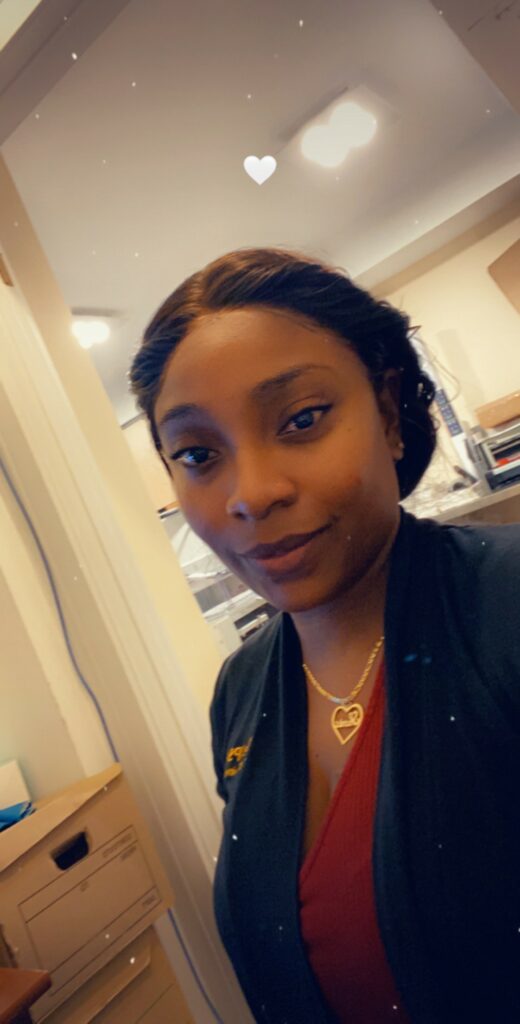
Choose Your Language:
Posted by: The Sumaira Foundation in NMO, Patient, Voices of NMO

I have always considered myself to be a very healthy individual with a very pepping personality. When I started medical school in 2017 in St Kitts and Nevis, I noticed tremors in my fingers; these tremors were so random that I totally neglected to consider the possibility of anything serious due to that fact that prior to medical school, I was a phlebotomist, which required a stable hand to draw blood from patients.
These tremors however persisted, which I then attributed to the increase of caffeine intake. As we know, medical students depend quite heavily on coffee to survive long hours for studying. While on rotation, I showed the tremors to one of the physicians and was told it was an essential tremor that I need not be worried about and alcohol helps with stabilizing.
Fast track to 2019 –> In the midst of the pandemic when I returned home to Toronto, these tremors became constant with new symptoms that felt like electrical shock going through my limbs. I quickly informed my family doctor about these new sensations but she had trouble figuring out the root cause of the issue. Her initial diagnosis was that it was likely due to stress which made completely sense to me because I had been studying for one of the most important exams for my career.
As time went on, I stopped wondering about my symptoms and continued to focus on my studies. In August 2021, I woke up in the middle of the night screaming in excruciating pain and panic because I had lost ALL sensation in my hands and feet as well as mobility. Thank God that episode only lasted for about 30 minutes. I immediately reached out to my family doctor, requesting to see a neurologist as soon as possible because none of this was normal.
I was given an urgent appointment with the neurologist. After explaining all of my symptoms to him, the neurologist ordered a full autoimmune disease workup that consisted of an extensive amount of labs. One week later, I received a call, hoping for good news but received the opposite.
I was silent. I had no idea what this disease was or what it meant. I asked more questions. The doctor told me he had only ever seen one other patient with this disease. The neurologist arranged for an urgent lumbar puncture and MRIs of the brain and spine to check for lesions. Two days after the lumbar puncture, I had a post dural puncture headache. The medics transported me to the hospital where I received an epidural blood patch.
Throughout this entire ordeal, I had one week to get to Kansas City for school. I was dealing with shock and sadness with the news of my diagnosis. Being a medical student, I spent the next week researching neuromyelitis optica and given everything I read, I became even more depressed. Meanwhile, the neurologist reached out to inform me that the MRI had come back normal but wanted to do another one with contrast.
Three days after starting my program in Kansas City, my neurologist informed me that according to the MRI, there were signs of mild cerebellar herniation with Arnold-Chiari 1 malformation. I was shocked to receive this news but knew I had to put on a strong face. I decided to channel my frustration in a positive way.

I have my bad days when I don’t want to get out of bed, let alone study, because my body simply isn’t working with me BUT I am grateful that I was able to get ahead of my diagnosis before experiencing vision loss or mobility issues.
I will persevere and prove that no matter what diagnoses you may have, you must muster up the strength to get up and move forward one step and one day at a time. Enjoy the good days and fight through the bad days.